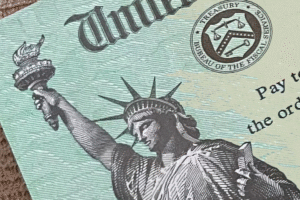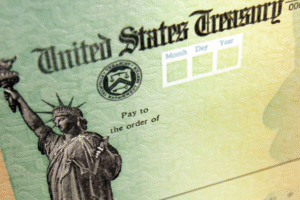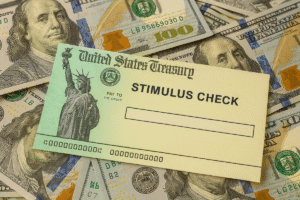A new $1,900 direct deposit from the IRS is scheduled to hit bank accounts this Friday, offering welcome financial relief for millions of Americans. This one-time payment is part of the government’s ongoing effort to support individuals and families dealing with high living costs and income disruptions. If you filed your taxes for 2024 and meet certain income requirements, you may already be in line to receive this deposit.
Who Qualifies for the $1,900 IRS Payment?
Eligibility for the $1,900 IRS direct deposit is based on a few important factors. First, you must have filed your 2024 federal tax return, and your adjusted gross income (AGI) must fall within the qualifying range: under $80,000 for single filers or under $160,000 for joint filers. Additionally, taxpayers who claimed the Earned Income Tax Credit (EITC), Child Tax Credit (CTC), or received unemployment benefits in 2024 may also be prioritized. Those who opted for direct deposit on their tax return will be first in line for payment.
When and How Will You Get Paid?
The first wave of $1,900 payments will be deposited on Friday, July 19, 2025. The IRS is prioritizing taxpayers who included direct deposit information when filing. If you qualify but didn’t add banking details, you will receive a paper check or debit card, which may take 7–10 additional business days. You can track your payment status using the IRS Refund Tracker online. This tool shows when your payment was processed and how it’s being delivered.
$1,900 IRS Direct Deposit – Quick Overview
| Category | Details |
|---|---|
| Payment Amount | $1,900 one-time |
| Payment Date | Friday, July 19, 2025 |
| Filing Requirement | 2024 federal return |
| Income Limit (Single) | Under $80,000 |
| Income Limit (Joint) | Under $160,000 |
| Delivery Method | Direct Deposit / Paper Check / Debit Card |
| Tracking Tool Available | IRS Refund Tracker |
The $1,900 IRS direct deposit arriving this Friday could be a crucial financial lifeline for those who qualify. If you’ve already filed your 2024 taxes and meet the income criteria, keep an eye on your bank account. Make sure your contact and banking information is accurate to avoid delays. For those expecting a mailed payment, check your mailbox the following week. This relief effort is a significant step toward easing the financial pressures many households are currently facing.
FAQ’s:
1. Is this $1,900 payment considered a tax refund or a stimulus?
It is classified as a refundable tax credit, meaning it functions like a stimulus and will not be taxed.
2. Do I need to apply separately to receive this deposit?
No. If you’re eligible based on your 2024 tax return, the payment will be sent automatically.
3. What if I didn’t provide direct deposit details?
You’ll receive a paper check or debit card at the mailing address listed on your return.
4. Can I still qualify if I filed late?
Yes, but late filers may receive their payments in a later wave, depending on when the return was processed.
5. How can I track my payment?
Use the IRS Refund Tracker online by entering your SSN, filing status, and refund amount.







